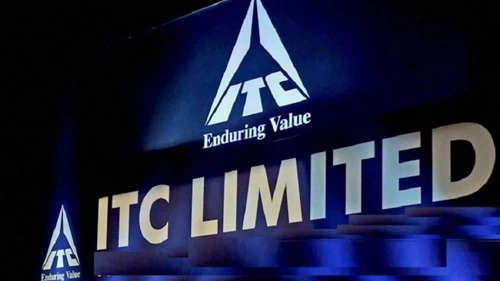SWOT Analysis of ITC Limited in 2025
ITC Limited, a diversified Indian conglomerate with interests spanning FMCG, hotels, paperboards, packaging, and agribusiness, continues to be a significant player in the Indian market. A comprehensive SWOT analysis—assessing Strengths, Weaknesses, Opportunities, and Threats—provides insight into the company’s current position and future prospects.
Strengths
1. Diversified Business Portfolio: ITC’s extensive range of businesses, including FMCG, hotels, paperboards, packaging, and agribusiness, allows the company to mitigate risks associated with dependence on a single sector. This diversification enables ITC to leverage synergies across different segments, contributing to its overall stability and growth.
2. Strong Financial Performance: In the fiscal year ending March 31, 2024, ITC reported a gross revenue of ₹69,446.20 crore. The company declared a total dividend of ₹13.75 per share for the financial year, reflecting its commitment to shareholder value.
3. Leadership in FMCG Sector: ITC has established a robust presence in the FMCG market, with its ‘Others’ segment achieving a full-year segment revenue growth of 9.6% and a segment profit before interest and tax (PBIT) increase of 29.4% year-over-year. The company’s focus on innovation and brand building has strengthened its market position.
4. Sustainability Initiatives: ITC is committed to sustainability, implementing various initiatives to reduce its environmental footprint. The company’s efforts in sustainable agriculture, water conservation, and renewable energy underscore its dedication to responsible business practices.

Weaknesses
1. Dependence on Cigarette Business: Despite diversification, a significant portion of ITC’s revenue is derived from its cigarette segment. This reliance exposes the company to regulatory risks, such as increased taxation and stringent health regulations, which can impact profitability.
2. Subdued Consumer Demand: In recent quarters, ITC faced challenges due to subdued consumer demand, particularly in the FMCG sector. The company reported a modest 3% increase in profit to ₹5,078 crore in the second quarter of FY2025, missing analysts’ expectations. This was attributed to higher raw material costs and cautious consumer spending.
3. Operational Challenges in Hotel Segment: The hospitality industry has faced significant disruptions, and ITC’s hotel segment has been impacted. The demerger of ITC Hotels into a separate entity, effective January 1, 2025, reflects the company’s strategic response to these challenges.
Opportunities
1. Expansion in FMCG Sector: The growing demand for packaged and convenience foods in India presents an opportunity for ITC to expand its FMCG portfolio. By leveraging its established distribution network and brand equity, the company can capture a larger market share in this segment.
2. Digital Transformation: Embracing digital technologies can enhance ITC’s operational efficiency and customer engagement. The company’s collaboration with the Department for Promotion of Industry and Internal Trade (DPIIT) to support startups in the manufacturing sector highlights its commitment to innovation and digital integration.
3. Sustainable and Ethical Products: With increasing consumer awareness of environmental and ethical issues, ITC has the opportunity to develop and market sustainable products. This aligns with global trends and can differentiate the company in a competitive market.
Threats
1. Regulatory Risks: The tobacco industry is subject to stringent regulations, including higher taxes and advertising restrictions. Such regulatory pressures can adversely affect ITC’s cigarette business, necessitating strategic adjustments.
2. Intensifying Competition: The FMCG sector in India is highly competitive, with both domestic and international players vying for market share. ITC faces challenges from competitors offering diverse product ranges and aggressive pricing strategies.
3. Economic Uncertainties: Macroeconomic factors, such as inflation and fluctuating commodity prices, can impact consumer spending and operational costs. ITC’s performance is susceptible to these economic variables, which can affect profitability.
Conclusion
In 2025, ITC Limited continues to leverage its diversified business model and strong market presence to navigate a dynamic economic environment. While challenges persist, particularly in the cigarette and hotel segments, the company’s strategic initiatives in expanding its FMCG portfolio, embracing digital transformation, and focusing on sustainability position it well for future growth. By addressing its weaknesses and capitalizing on emerging opportunities, ITC aims to sustain its leadership in the Indian market.


